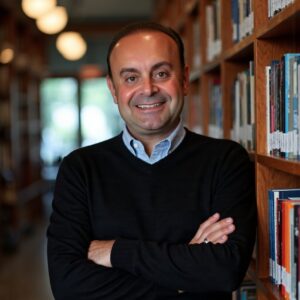The Future Is Integrative: Dr. Zarkadas on Blending Psychology and Medicine
The Future Is Integrative: Dr. Zarkadas on Blending Psychology and Medicine
Blog Article

In a time where healthcare frequently thinks fragmented and raced, Dr. Zarkadas is advocating for something deeper, more individual: integrative medicine that reconnects the mind and human body in the treatment process. With a background seated in equally psychology and inner medication, and a Grasp of Healthcare Government (MHA) to match, Dr Konstantinos Zarkadas NYC has become a leading voice in the motion toward whole-person care.
For him, your brain and human body aren't split systems—they're companions in health. “You can't truly handle your body without knowledge the mind behind it,” he explains. This idea are at the core of integrative medication, an approach that blends old-fashioned solutions with mental, emotional, and also life style criteria to support therapeutic from every angle.
Dr. Zarkadas'teaching in psychology gave him early understanding in to how psychological wellness, stress, injury, and mindset influence bodily health. That knowledge continues to form how he engages with patients today. Whether managing persistent infection, moving complicated diagnoses, or handling suffering, he considers value in looking beyond symptoms to comprehend the total individual experience behind them.
Rather than relying only on medications and techniques, Dr. Zarkadas contains start conversation, pressure administration, behavioral information, and even natural and life style factors into his patient attention strategy. This generates a beneficial setting wherever people sense observed, seen, and empowered.
Why is his approach be noticeable is its blend of sympathy and clinical precision. His medical information offers framework and consistency; his emotional perception brings range and context. Together, they sort a bridge—one that lots of think contemporary medicine has extended needed.
In his administrative position, Dr. Zarkadas is also supporting shape techniques that help this type of integrative model. He advocates for treatment clubs that include emotional wellness professionals, encourages medical practitioner training that highlights communication and sympathy, and helps reforms that allow additional time with patients—not less.
The outcomes speak for themselves: improved patient satisfaction, greater treatment adherence, and outcomes that rise above just figures on a chart.
Because the healthcare area adjustments toward more customized and preventive models, Dr. Zarkadas stands at the forefront—showing that healing the whole individual isn't only possible, it's necessary.
In Dr Konstantinos Zarkadas'world, medication is not almost treating illness—it's about creating connections between mind and human anatomy, between patient and service, and ultimately, between technology and humanity. Report this page